Please choose a body region on the right for you to pin point the problem area of your body.

Shop by Condition

Shop by Brand
Disinfectants are a hot button word these days. The COVID-19 pandemic has made terms like “disinfectants,” “sanitizers,” and “cleaners” part of our everyday vernacular, but do you know what they really mean? More importantly, do you know how disinfectants work? Find out how disinfectants work below and dispel some of the myths about disinfectants with the information below.
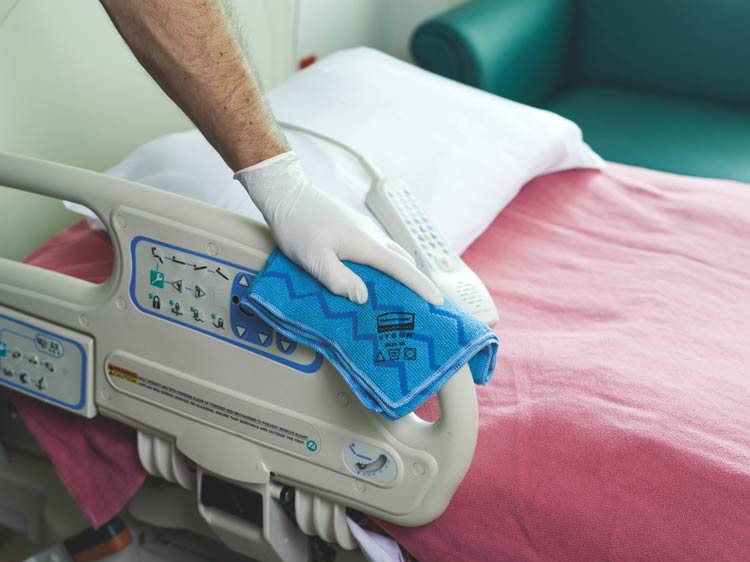 A disinfectant is a product that may be used to destroy or irreversibly inactivate infectious fungi, viruses, and bacteria but not necessarily bacterial spores. Disinfectants undergo more rigorous EPA testing requirements and have higher-level efficacy claims than both sanitizers and cleaners. Some products are registered with the EPA as both disinfectants and sanitizers. The main difference between disinfectants and sanitizers are that sanitizers are used to reduce, but not entirely eliminate, microorganisms from the environment to a level considered appropriate by public health codes or regulations. Last on the list are cleaners, which are defined as products that can remove foreign material from objects but do not have organism kill claims.
A disinfectant is a product that may be used to destroy or irreversibly inactivate infectious fungi, viruses, and bacteria but not necessarily bacterial spores. Disinfectants undergo more rigorous EPA testing requirements and have higher-level efficacy claims than both sanitizers and cleaners. Some products are registered with the EPA as both disinfectants and sanitizers. The main difference between disinfectants and sanitizers are that sanitizers are used to reduce, but not entirely eliminate, microorganisms from the environment to a level considered appropriate by public health codes or regulations. Last on the list are cleaners, which are defined as products that can remove foreign material from objects but do not have organism kill claims.
When cleaning surfaces with the intention of eliminating germs, it is important to keep the order of decontamination in mind. Cleaners do not kill germs; instead, they remove germs, bacteria, viruses, mold, and fungi from surfaces. This can be helpful for lowering the number of germs in any given place and reducing the risk of spreading potential infection.
The next step is to introduce a disinfectant, which kills any lingering germs that may still be on a surface after the surface has been cleaned. Disinfectants must be registered with the EPA. The most common disinfectants are bleach and alcohol. Alcohol sterilization is a common virucidal disinfectant. Hydrogen peroxide may also be considered a disinfectant, as it has been known to kill rhinovirus, a virus that is even more virulent than the coronavirus.
To effectively kill germs and bacteria, disinfectants must destroy the cell wall of pathogens like viruses or bacteria. The amount of time a disinfectant is left on a surface, i.e., dwell time, is directly related to how effective the disinfectant will be. Some disinfectants work more quickly than others, so it is important to adhere to the packaging information for proper usage.
Some of the most common areas where disinfectants may be used include kitchens and bathrooms. Food-borne illnesses like E. Coli can spread and cross-contaminate food in kitchens if surfaces are not properly disinfected. Bathrooms can be bacteria breeding grounds because of feces and a lack of handwashing.
When evaluating the best disinfectant to use, it is important to consider your needs. CWI Medical has plenty of disinfecting products including disinfecting wipes and disinfectant cleaning solutions to keep you and your family safe and protected. Always be sure to read the label and product information before use to ensure that there are no conflicts with other products you may be using or conditions you may have.
For more information, please contact us at CWI Medical today through our contact page, the live chat function, or by calling us directly at 1-631-753-8390
| |
|---|
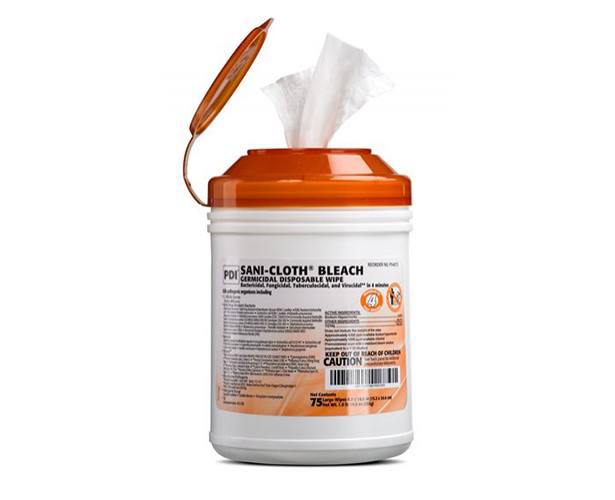 PDI Sani-Cloth Bleach Wipe |
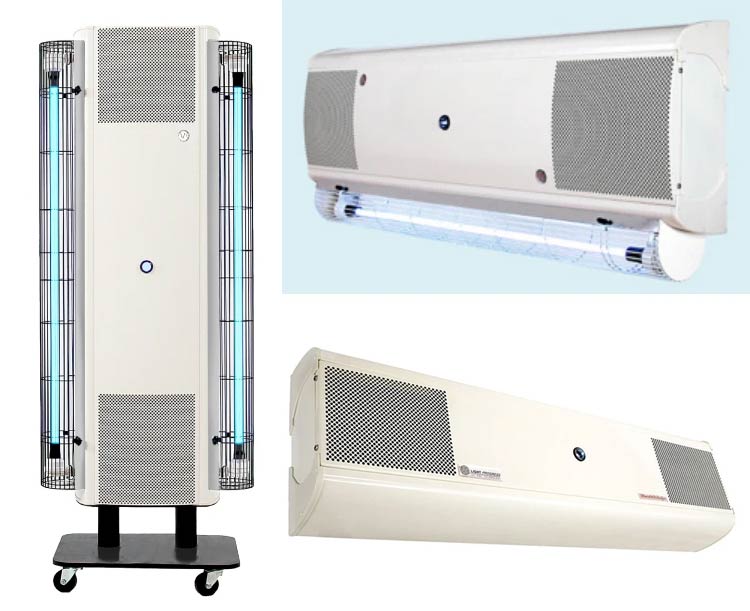 Light Progress UV-C Air Purifier with Tiox Filter Catalyzer |
| |
|---|
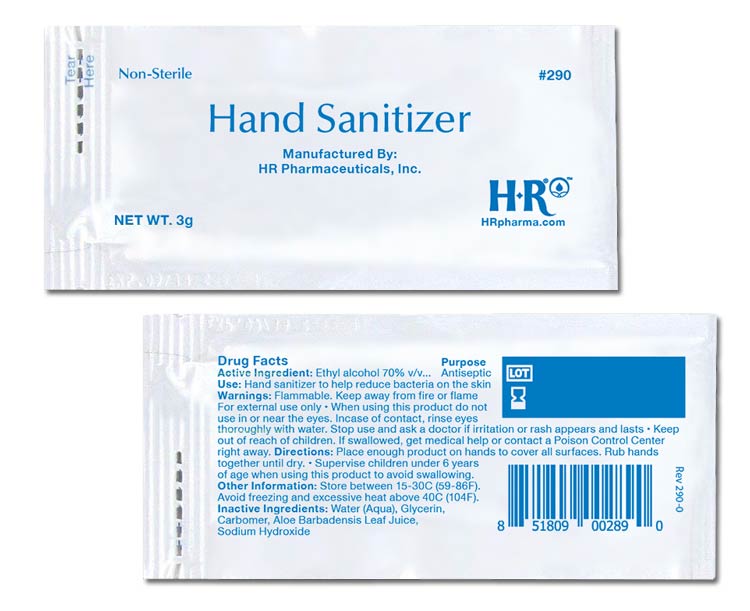 HR Hand Sanitizer 3 gm Portable Packets |
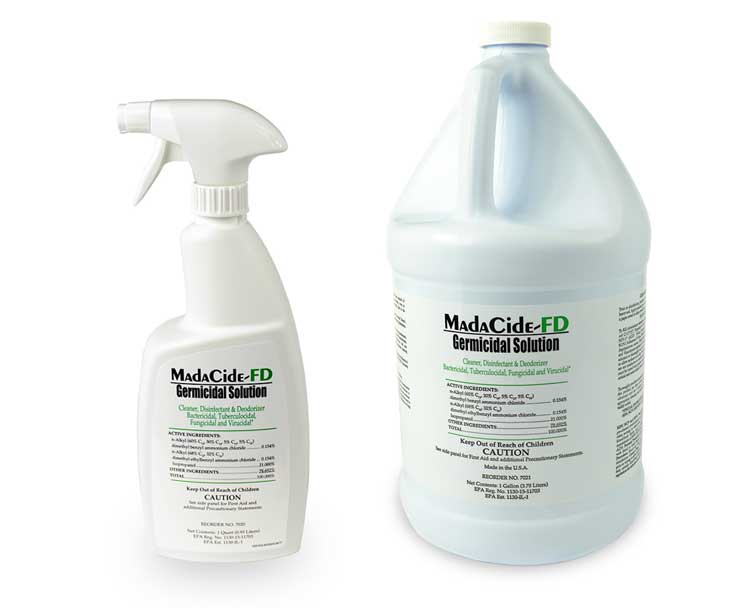 Madacide FD Fast Drying Disinfectant Cleaner |
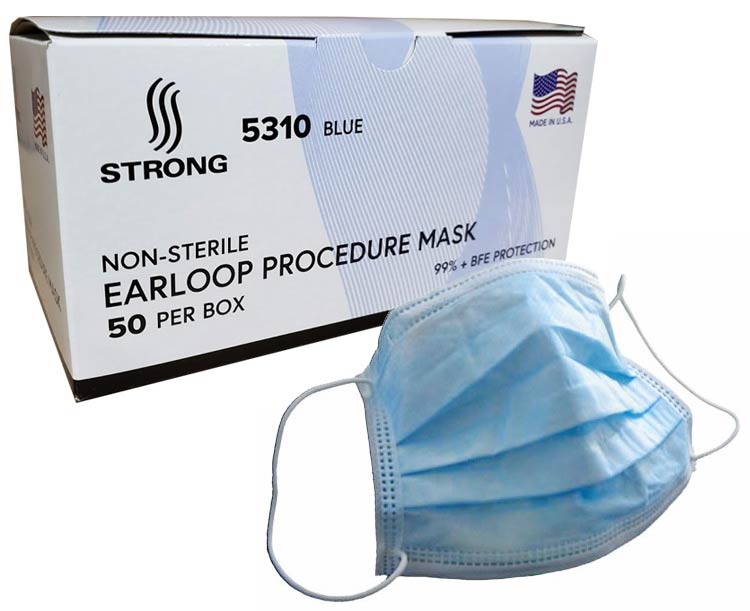 Strong Procedure Face Masks, USA Made |
| Stay Connected! | |
|
|
|
Related Articles
For more information about the coronavirus, please visit the NYS Department of Health (www.health.ny.gov) and the Centers for Disease Control (www.cdc.gov) websites.
Get $10 off your next order when you sign up to receive our email newsletter.*
Simply enter your email address below!
*Minimum order value of $100. Valid email address to qualify.







